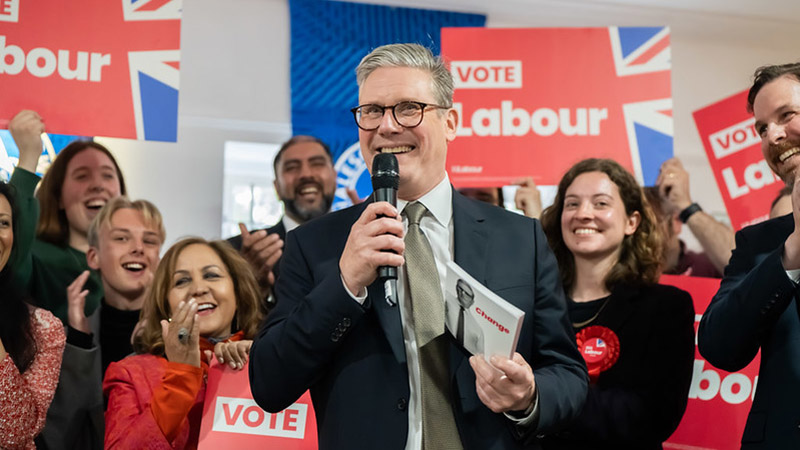With days before the UK general election, a Labour win is all but certain and markets have priced in a landslide victory, according to Isabel Albarran, investment officer at Close Brothers Asset Management.
Labour is polling at 40%, with the incumbent Conservatives trailing behind at 20%. Albarran pointed out that no party has ever won an election when polling more than 10 points behind.
And now that markets are confident in their forecasts, anything but a Labour majority could cause a downturn in the pound. A smaller Labour majority could make the new executive reliant on hard-left MPs to pass policies, while a hung parliament in which government is only possible through a coalition or agreements could also cause currency weaknesses.
Markets want a Labour majority so that it can comfortably implement its policies, according to Albarran. She said: “A sizeable majority is seen as a benign outcome, giving Labour scope to implement supply side reforms that could support growth in the longer term.”
Given the sensible fiscal policy outlined in its manifesto, Labour is seen as a safe pair of hands to deliver some much-needed stability to UK markets after a volatile period.
Flows into UK equities have already picked up somewhat over the past month on the expectation of a Labour victory, and confirmation of their new government on Thursday could accelerate that.
Political uncertainty in other European countries such as France has exacerbated this, making the UK a comparatively stable market for investors in the region.
Albarran said: “Given limited fiscal room and the still-fresh memory of the Truss mini-budget, neither the Conservatives nor Labour propose significant unfunded spending increases. Fiscal probity remains in vogue.”
See also: Blue Whale’s Yiu: How the UK election could impact investors
Overall, a change in government improves the investment case for the UK, but Albarran said “the outlook is more mixed” in areas such as energy and infrastructure.
Labour’s proposal to up taxes on energy companies – potentially going as far as to reduce their investment allowances – and significantly increase the UK’s renewable infrastructure offers less stability than other elements of its manifesto.
These policies could cost the government £25bn a year, paired with the additional £1.7bn annual investment needed to set up GB Energy.
Yet Labour has vowed not to raise key tax rates. It has ruled out hikes to Income Tax, National Insurance, VAT, and Corporation Tax, instead choosing to tackle tax avoidance, closing non-domiciled and carried interest loop-holes, and putting VAT on private schools.
Chasing this should raise £7bn a year but may not be enough to finance Labour’s grander plans.
Nevertheless, Albarran said Labour mostly evokes fiscal probity, which is what investors want to see in the UK market.
She added: “Whilst we remain alert to the unexpected, a shift in the policy agenda, or a low probability election result (such as a hung parliament), we expect the impact of the election on asset markets to be moderate, with the potential for an improvement in sentiment toward UK assets.”
See also: Could the UK small-cap revival be a ‘self-perpetuating cycle’?










